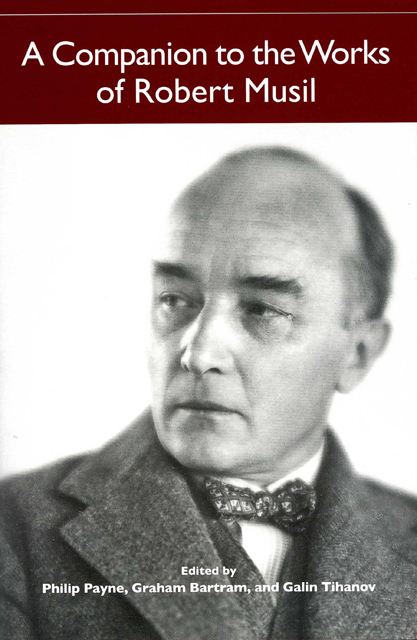Book contents
- Frontmatter
- Dedication
- Contents
- Preface
- Acknowledgments
- List of Abbreviations
- Musil's Principal Works
- Miscellaneous Frontmatter
- Introduction The Symbiosis of Robert Musil's Life and Works
- Musil's Life: Experiences, Reflections, Emotions of an Intellectual
- Literary Works before Der Mann ohne Eigenschaften
- Perspectives on Der Mann ohne Eigenschaften
- Select Bibliography
- Robert Musil's Life: A Chronology
- Notes on the Contributors
- Index
4 - Die Verwirrungen des Zöglings Törleß: Adolescent Sexuality, the Authoritarian Mindset, and the Limits of Language
Published online by Cambridge University Press: 15 March 2023
- Frontmatter
- Dedication
- Contents
- Preface
- Acknowledgments
- List of Abbreviations
- Musil's Principal Works
- Miscellaneous Frontmatter
- Introduction The Symbiosis of Robert Musil's Life and Works
- Musil's Life: Experiences, Reflections, Emotions of an Intellectual
- Literary Works before Der Mann ohne Eigenschaften
- Perspectives on Der Mann ohne Eigenschaften
- Select Bibliography
- Robert Musil's Life: A Chronology
- Notes on the Contributors
- Index
Summary
Introductory Remarks
In his essay “Über das Unanständige und Kranke in der Kunst” (On the Obscene and Pathological in Art) Musil writes: “Es gibt Dinge über die man in der Kulturgemeinschaft Deutschlands nicht spricht. Diese Tatsache erfüllt nicht nur mich mit Scham und Zorn” (GW II, 979: there are things about which one does not speak in the German cultural community. I am not the only one this fact fills with shame and anger; 5); he insists further: “Kunst kann Unanständiges und Krankes wohl zum Ausgangspunkt wählen, aber das daraufhin Dargestellte […] ist weder unanständig mehr noch krank” (Art may well choose the obscene and pathological as its starting point, but what is then depicted […] is no longer either obscene or pathological). What happens is that, through the act of representation in art, the issues are moved from the dark periphery of society into the well-lit arena of general social concerns; thus, the relevant material is integrated into the whole rather than becoming part of an unhealthy taboo. This essay was published in 1911, five years after the publication of Die Verwirrungen des Zöglings Törleß (The Confusions of Young Törless), but it helps to explainsomething of the impetus behind Musil's first novel whose content was, to say the least, uncomfortable.
Musil left no diaries or documentary evidence for the period of adolescence covered by the novel but it appears that much of the plot relates to experiences from this phase of his life. He also recognized, as he worked on it, that it had some merit: he wrote in a letter in 1905: “Ein[ ] Roman nicht ganz gewöhnlicher Art — Mit Fehlern behaftet, aber einer neuen Weise zu schreiben zustrebend” (Briefe I, 14: a […] novel that is somewhat unusual — with flaws, but struggling towards a new way of writing). The central figure, Törless, is based (evidently with some literary license) on Musil himself; the models for the other three main characters, Reiting and Beineberg, the class tyrants, and Basini who will be cruelly bullied, have been identified from Musil's school records since the corresponding names have scarcely been changed.
- Type
- Chapter
- Information
- A Companion to the Works of Robert Musil , pp. 151 - 174Publisher: Boydell & BrewerPrint publication year: 2010



